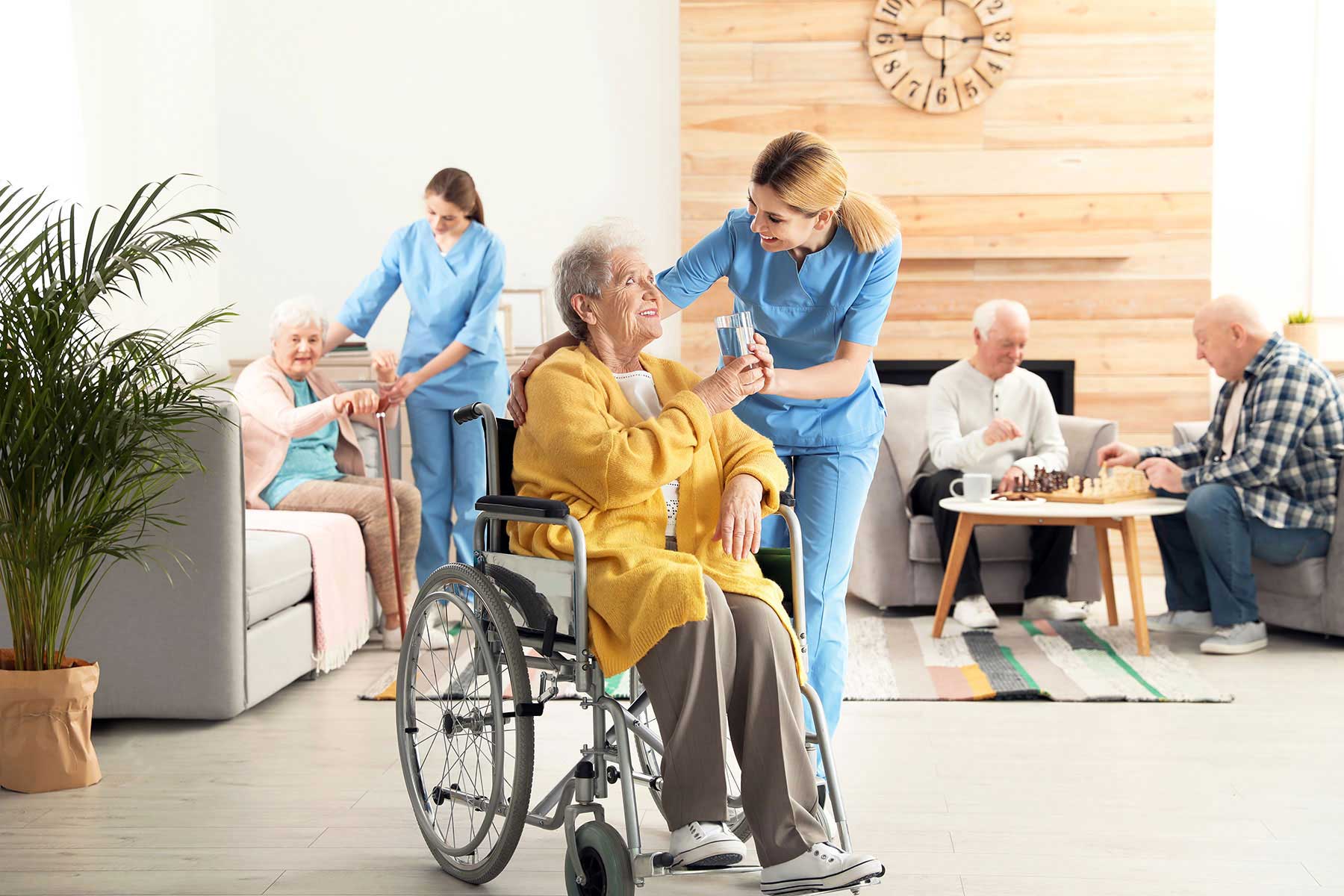3 Things to Consider For Accepting Visitors into an Aged-Care Facility

According to the New York Times, one-third of all COVID-19 related deaths are from residents and workers of nursing homes and long-term aged-care facilities.
That’s why, if you’re running an aged-care facility, it’s vital you take the appropriate steps to protect society’s most vulnerable population during the pandemic. However, knowing what the best course of action is to protect the elderly and your workers in aged-care facilities can be challenging.
Below, we’ll explore three key factors to take into account if you’re allowing visitors into an aged-care facility during and after the global coronavirus pandemic. Although these factors are based on USA guidelines and perspectives, these guides can be helpful whichever country you're in. We highly recommend you also check your local policy to ensure these factors align with local rules and guidance.
1. Cooperation and Compromise is Necessary
As we all witnessed during the pandemic COVID-19 is particularly lethal to older adults, especially those with underlying health conditions. That’s why, if there’s a community outbreak close to or in your aged-care facility, you need to implement strict visitor restrictions for the safety of those living and working there.
The AARP notes that many aged-care facilities will not be resuming traditional visits. In fact, the CDC is urging nursing homes to stop visitations until they have no COVID-19 cases for 28 days.
According to Elaine Ryan, the Vice President of state advocacy at AARP, it will be a long time before traditional visits continue again, especially in communities where there are new outbreaks.
“The rising death toll is an indicator that nursing homes and assisted living facilities do not have the virus under control by any means,” said Ryan. “Nursing homes have been in the lowest rung from the outset of the pandemic for any kind of staff support, PPE, infraction control, testing, tracing, even reporting of deaths. The prospect of opening doors to visitors in a way that protects the health and safety of everyone seems months away.”
If you’re managing an aged-care facility, you should also be empathetic and compassionate towards families and friends with loved ones staying in these facilities. Placing the elderly in an isolated environment with minimal social contact can be harmful to their mental and emotional wellbeing. Furthermore, those residents’ families and friends may want to continue their regular visits to check-in on loved ones and comfort them during this critical time.
Daniel Rusyniak, the Chief Medical Officer of the Indiana Family and Social Services Administration explained that “Isolation has serious impacts on the health and well-being of the residents of these facilities.”
While some states are relaxing visitation rules and allowing socially distanced, masked, and supervised visits, here’s a list of criteria that should be fulfilled before accepting visitors into an aged-care facility:
- There have been no new COVID-19 cases at your facility for at least one month
- There is a decline in cases in your surrounding community
- Your aged-care facility can supply residents and staff with weekly COVID-19 tests
- You have an adequate supply of PPE equipment and cleaning supplies
- There are no staff shortages
Cooperating with families of residents and finding a middle ground to ensure the elderly and your staff members are well protected from COVID-19 is critical. You should also look to external third-party organizations and government agencies to see what they recommend.
2. Comply with Governmental Agencies
Government Agencies are a fantastic resource that provide up-to-date information concerning the necessary actions to take to protect the elderly and your workers in aged-care facilities. For example, if you’re in the U.S., you should look to the CDC, the Centers for Medicare and Medicaid Services (CMS), your State Department of Health’s guidelines, or major organizations like the AARP.
Remember, each state will have different policies, so make sure you review both state and federal guidelines. If you’re in the U.S., the CMS recommends you do not reopen facilities for visitors (except on the grounds of compassionate care) until phase three.
3. Visitor Screening is a Must
Screening all visitors will be necessary before they enter the aged-care facility. All visitors should answer questionnaires concerning any COVID-19 symptoms and whether or not they have been in contact with others that have COVID-19 symptoms in the past 14 days. Visitors also need to report their recent travel history, have their temperature tested, agree to adhere to strict hand hygiene, wear protective equipment like a face covering or mask, and maintain social distancing at all times.
Implementing strict screening procedures can be difficult, but with the SwipedOn visitor management system, you can easily set-up this process, ensuring every visitor is screened and aware of the appropriate behaviour before entering the facility. SwipedOn’s visitor management system can also double up as a contact tracing tool, allowing you to track the time and date of everyone’s entry into the facility.

“Coronavirus has had a devastating impact on nursing homes, and as we reopen America, we want to make sure we are doing everything we can to protect our most vulnerable citizens,” said Seema Verma, Centers for Medicare & Medicaid Services Administrator. “Our focus continues to be the safety and quality of life of nursing home residents and while we are not at a point where nursing homes can safely open up, we want to make sure communities have a plan in place when they are ready to reopen.”
While many states are relaxing lockdown laws, there’s a good chance your aged-care facility isn’t reopening to visitors anytime soon, especially due to the rise in over a million new COVID-19 cases in the U.S. in less than a month, as of July 8, 2020.
Be prepared when your aged-care facility does reopen—it’s not an option, it’s a necessity. Equip your organization with the right screening tools, PPE equipment, social distancing guidelines, and regulations to protect your residents, workers, and visitors.



-929560-edited-003563-edited.jpg)





 Germany - Deutsch
Germany - Deutsch